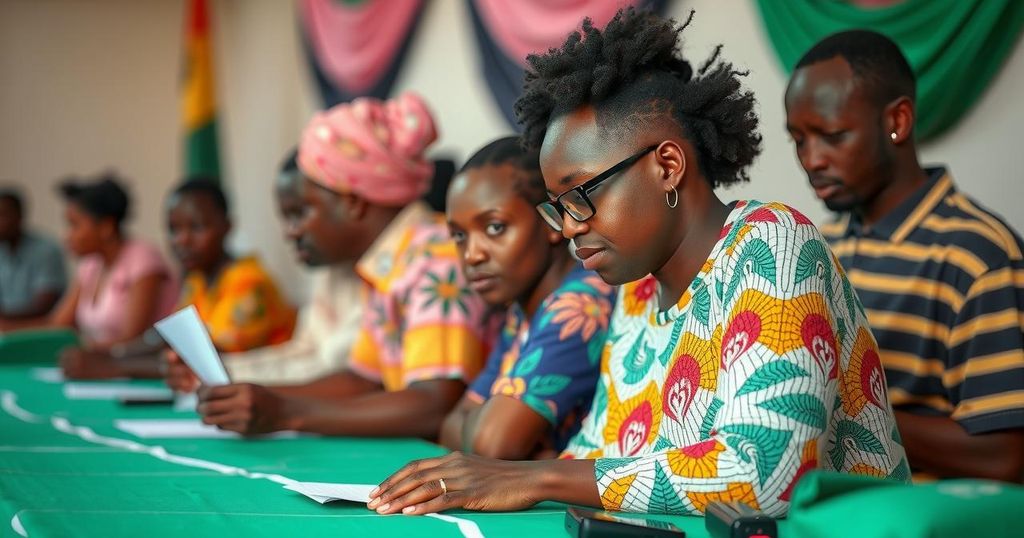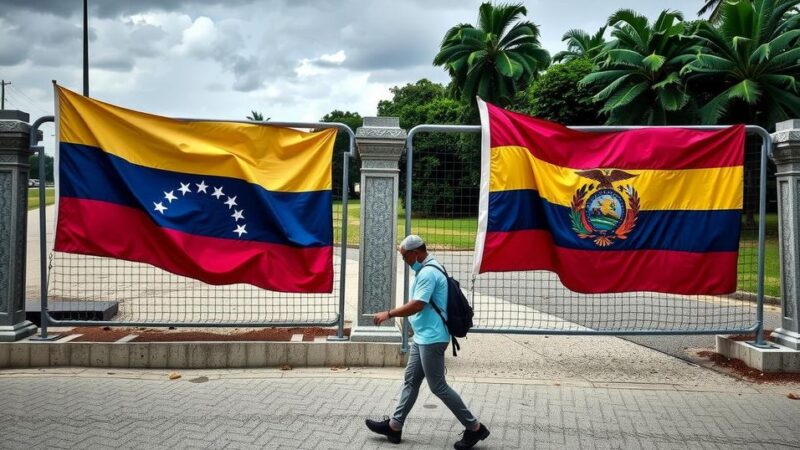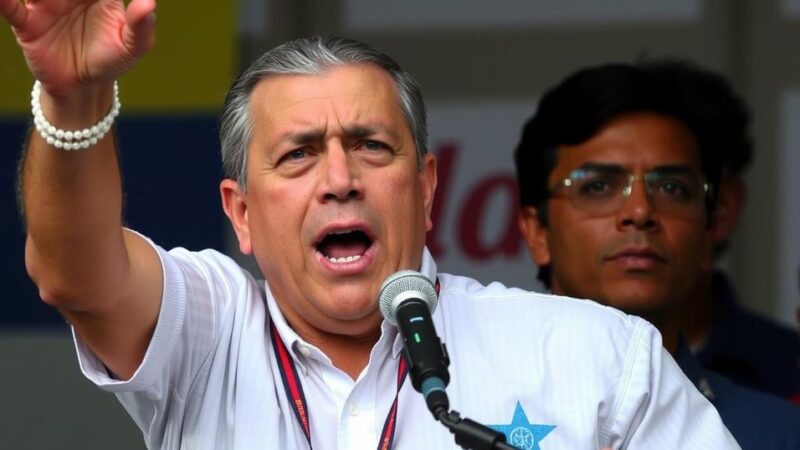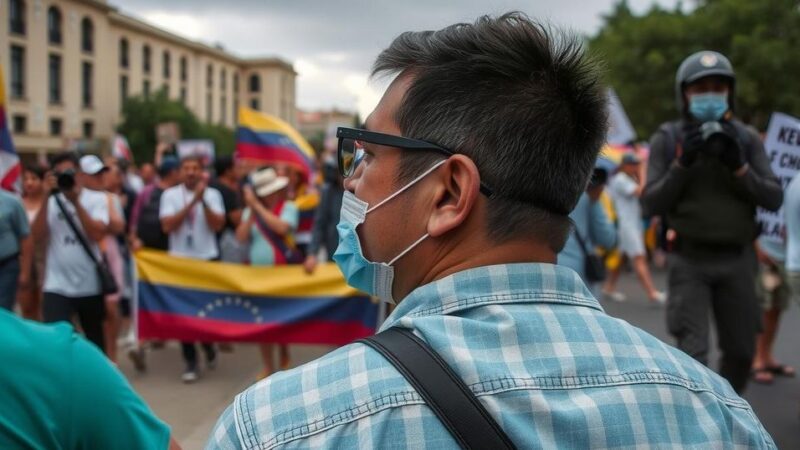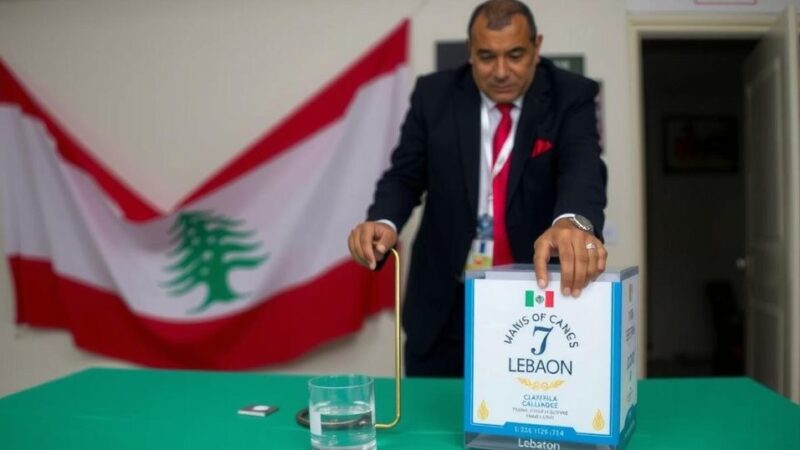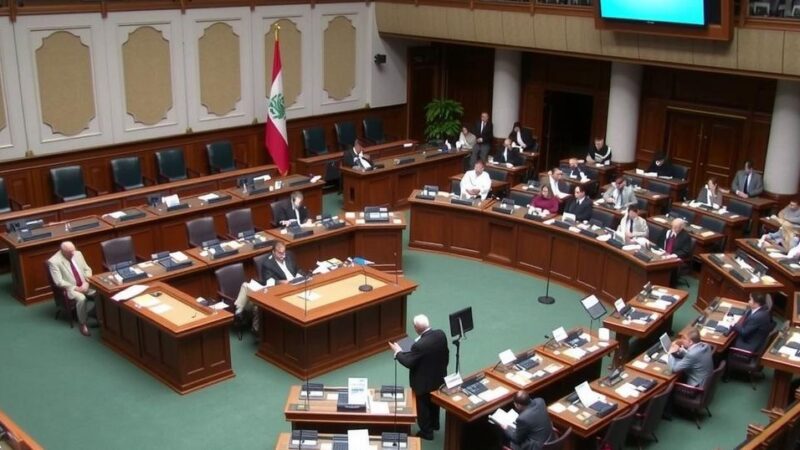Election day in Ghana marks a pivotal moment as citizens choose a new leader amid economic challenges, following Nana Akufo-Addo’s departure after two terms. Former President John Mahama and Vice-President Mahamudu Bawumia are the main contenders in a field of candidates. With approximately 19 million registered voters, the elections will impact both the presidency and parliamentary representation, amidst high inflation and unemployment rates affecting the electorate.
As the election day unfolds in Ghana, voters are set to choose a new president amidst pressing concerns over a national debt crisis and high living costs. With the incumbent, Nana Akufo-Addo, stepping down after two terms, the race is primarily between former President John Mahama of the National Democratic Congress (NDC) and Vice-President Mahamudu Bawumia from the governing New Patriotic Party (NPP). With approximately 19 million Ghanaians registered to cast their votes, citizens face a pivotal decision that reflects their economic hardships and aspirations for their nation’s future.
The elections are significant not only for the presidential position but also for the 275 parliamentary constituencies where members of parliament will be elected. Despite the introduction of measures aimed at increasing female representation in Ghanaian politics, the only female presidential candidate, Akua Donkor, passed away last October, leaving her name on the ballot due to the disqualification of her successor.
Historically, since the reintroduction of multi-party politics in 1992, only candidates from the NDC or the NPP have won the presidency, with no party having secured more than two consecutive terms. To win outright in the first round, a presidential candidate must obtain over 50% of the votes, or else a run-off between the top two contenders will ensue. The polling stations will operate for ten hours, from 07:00 GMT to 17:00, with results anticipated within three days.
Recent years have been challenging for the Ghanaian population, experiencing a peak inflation rate of 54.1% in 2022, which has severely impacted the living standards and economic stability of households. Unemployment rates remain high, particularly among the youth, which could influence the election’s outcome. As voters engage in this critical democratic process, their choices will define the trajectory of Ghana’s economic recovery and political landscape.
Ghana is at a significant crossroads as it approaches its upcoming presidential election. The nation has experienced mounting economic challenges, including a substantial debt crisis and inflationary pressures that have increased the cost of living for its citizens. With Nana Akufo-Addo’s departure after two terms, the election presents an opportunity for change. The presence of familiar political figures adds to the narrative, as Ghanaians weigh their options at the ballot box. The political landscape remains largely dominated by two parties: the National Democratic Congress (NDC) and the New Patriotic Party (NPP). Voter engagement is pivotal, particularly in light of recent efforts to enhance women’s participation in politics, although significant barriers persist. The upcoming election is not only a reflection of the current economic climate but also a crucial moment for Ghanaians to voice their priorities and aspirations for governance.
In conclusion, the electoral process in Ghana marks a substantial moment for the nation’s democracy amid economic turmoil and challenges. As voters head to the polls, their decisions will shape the future trajectory of Ghana’s leadership and socio-economic conditions. The prominence of two main parties, along with the historical context of previous elections, underscores the weight of this election. Ghana’s citizens are determined to elect a leader who can effectively address the pressing issues of inflation and economic recovery as they strive for a better future.
Original Source: www.bbc.co.uk

